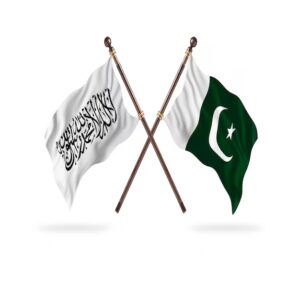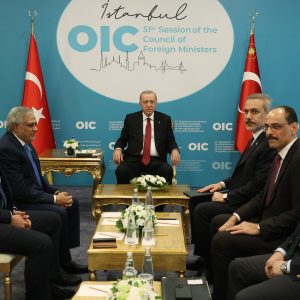Tracing Pakistan’s hidden role in shaping Indian democracy
While Pakistan struggles with its own democratic foundations, its invisible yet impactful contributions to Indian democracy remains hidden
By Iftikhar Gilani
In the sprawling narrative of South Asian history, the intertwined paths of India and Pakistan often evoke images of conflict and division. However, a deeper delve reveals a shared legacy that has subtly influenced the democratic frameworks of both nations, with Pakistan making pivotal yet underappreciated contributions to Indian democracy.
One of the less-known but significant contributions is the development of indelible ink, a critical tool in safeguarding electoral integrity. Over 30 countries worldwide now utilize this ink to prevent fraudulent voting practices.
The story of this ink began ahead of 1946 Constituent Assembly elections in united India.
Unknown to many, the architect behind this simple yet revolutionary invention was Salim-u Zaman Siddiqui, a Pakistani scientist and the founding chairman of the National Science Council of Pakistan. He was also the younger brother of Chaudhry Khaleeq-u-Zaman Siddiqui, a prominent leader of the Muslim League.
Before the partition in 1947, Siddiqui was part of the Council of Scientific and Industrial Research (CSIR) in India, where he worked under the eminent scientist Shanti Swarup Bhatnagar.
At the behest of the British rulers, Bhatnagar tasked Siddiqui with developing a method to permanently mark voters. Through rigorous experimentation with silver chloride and silver bromide, Siddiqui formulated an indelible ink that was both effective and harmless to human skin.
Although Siddiqui migrated to Pakistan post-partition, his innovation lived on and became a staple in Indian elections, later spreading globally. The ink was used for the first time in India’s first general elections held in 1951.
Gopal Krishna Gandhi, a former governor and grandson of Mahatma Gandhi, even recently suggested naming the system “SiddikInk” to honour its creator — a suggestion that has yet to be officially recognised in India’s current political climate.
India, leveraging this legacy, is now the largest exporter of indelible ink, supplying it to various democracies during elections.
Another noteworthy Pakistani contribution to Indian democracy involves the election of revered figure Bhimrao Ambedkar, celebrated as the architect of the Indian Constitution.
In 1946, Ambedkar faced a significant setback when he lost an election from Bombay, largely influenced by Congress leader Sardar Vallabhbhai Patel. With no apparent route to enter the Constituent Assembly, Ambedkar’s fortunes changed due to the intervention of the Muslim League.
Influenced by Joginder Nath Mandal, a Dalit leader and advocate for a Dalit-Muslim alliance, Muhammad Ali Jinnah, the founder of Pakistan, facilitated Ambedkar’s entry by orchestrating a resignation and subsequent by-election in the Jasur-Khulna constituency (now in Bangladesh).
This strategic support not only ensured Ambedkar a seat in the Assembly but also positioned him to chair the nine-member drafting committee of the constitution. Ironically, despite his monumental role in drafting the constitution, Ambedkar suffered defeats in subsequent elections post-independence.
Interestingly while Ambedkar became the first law minister of India, his political master, Joginder Nath Mandal was appointed law minister and chairman of the drafting committee of constitution in Pakistan under Jinnah. But soon after Jinnah’s death his relations soured with his cabinet colleagues and Prime Minister Liaquat Ali Khan that ultimately led to his return to India.
But in India Mandal was always viewed with suspicion and was never able to regain his pre-independence status. He spent all his time looking after refugees (mostly Dalits) from East Pakistan. No political party was willing to accept him. He finally died in Calcutta in 1968 an obscure death.
The story of these two nations’ contributions to each other’s democratic processes does not merely highlight individual achievements but also underscores the complex, shared histories that mold their present realities.
Both India and Pakistan had Dalit law ministers instrumental in shaping their respective constitutions—a testament to the intertwined destinies beyond their tumultuous divide.
While Pakistan struggles with its own democratic foundations, its invisible yet impactful contributions to Indian democracy underscore a common heritage that transcends contemporary political strife.
This narrative not only enriches our understanding of South Asian history but also calls for a recognition of the nuanced interdependencies that continue to shape the subcontinent’s political landscape.










